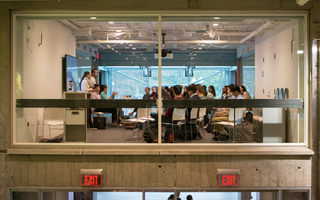{shortcode-88bda9487907b1c470169ea95a77576299a5acfd}
Reports of on-campus bias crimes jumped in 2019, while reported rapes on campus declined for the third consecutive year, Harvard’s annual security report published Friday by the University’s police force showed.
In total, Harvard University Police Department took 180 reports of criminal offenses on campus over the past year — a dozen more than in 2018. Forty-eight of those reports were associated with burglaries, making burglary the crime with the highest incidence on campus. More than 90 percent of reported crimes on campus are property-related.
HUPD prepares the report, entitled “Playing it Safe,” and emails it to University affiliates annually in compliance with the Clery Act, which requires universities to keep students and staff apprised of information related to security policies and the rate of reported crimes on campus.
Though the incidence of crime on campus in 2019 was broadly consistent with previous years, some categories of crimes surged while others waned.
Robberies on Harvard’s campuses more than doubled between 2018 and 2019. 2019 saw 20 robberies, rising from just nine in 2018.
On-campus disciplinary actions related to drug and alcohol violations more than halved in 2019 in comparison to the previous year.
In 2019, HUPD responded to 22 aggravated assaults on campus, compared with 15 aggravated assaults the previous year.
The report also includes sexual assault-related figures, citing a three year decline in reported rapes on campus. In 2017, 2018, and 2019, HUPD took 36, 32, and 26 reports of rape, respectively.
Reports of bias crimes increased in 2019, though. While the department only took two reports of bias crimes in 2018, in 2019 it took seven.
Crimes included in the report occurred on properties owned by Harvard, properties owned by Harvard student-organizations, or public property that is within Harvard’s campuses or in their immediate vicinity.
In addition to reports of crimes HUPD takes directly, Harvard solicits relevant criminal information from local police departments, including those in Cambridge, Boston, and Somerville, as it prepares the annual report.
Consistent with previous years, the majority of crimes — 93 percent — HUPD recorded took place on Harvard’s Cambridge campus, which is home to the College and graduate schools including the Business School and the Law School. The other seven percent occurred at the University’s Longwood campus, which comprises the Medical School, the T.H. Chan School of Public Health, and the School of Dental Medicine.
In tandem with HUPD’s report, on Friday the Harvard Environmental Health and Safety Department also released a report on fire safety. Per that report, the University took four reports of fires in on-campus dormitories or University housing in 2019, sparked variously by an unattended toaster oven, an unattended stovetop, and tension in an electrical vault. None caused injuries.
In a message the report attributed to HUPD Chief Francis D. “Bud” Riley, the outgoing chief characterized crime at Harvard as “low.” Still, he urged University affiliates to stay vigilant.
“It is important for students, faculty, staff, and visitors to remember that we are located in an urban setting and must contend with many of the crime and safety issues that exist in any city,” he said. “Preserving the safety and security of the University is the combined responsibility of the entire community.”
—Staff writer Ema R. Schumer can be reached at ema.schumer@thecrimson.com. Follow her on Twitter @emaschumer.
















